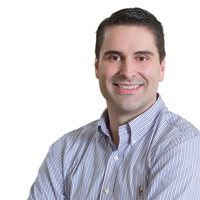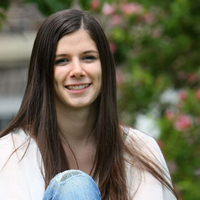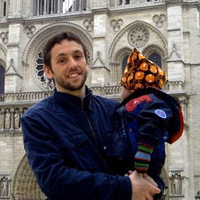From the Fall 2012 issue of .
Most new graduates leave university confidently imagining perfect future lives, but many wonât learn one truth until after graduation: few lives work out exactly as planned.
Itâs not until we face trials and errors head-on that a right path appears to us, often out of the blue. So if everyoneâs future is uncertain, why do todayâs students feel such intense pressure to make watertight plans so early on?
Maybe itâs the age. Millennials face hurdles unheard of 30 years ago. With nearly a million unemployed Canadians under 30, endless contract jobs, overheated house prices and rising debt from taking on graduate and undergraduate degrees, todayâs alumni have every right to feel stressed.
But a university degree still carries enormous economic clout. And there is hope: we sought out three alumni who faced challenges in finding their way, and their stories illustrate key lessons on bouncing back from failure.
Fail fast and fail early
 Ben Graham (BCommâ02) was hired at PartSelect.com 10 years ago to drive the companyâs transition from a failing business-to-business sales model to a direct-to-consumer operation providing parts and advice to homeowners wanting to repair their own appliances. Today, heâs Director of eCommerce with 50 staff, managing an office that recently doubled its square footage to accommodate that growth.
Ben Graham (BCommâ02) was hired at PartSelect.com 10 years ago to drive the companyâs transition from a failing business-to-business sales model to a direct-to-consumer operation providing parts and advice to homeowners wanting to repair their own appliances. Today, heâs Director of eCommerce with 50 staff, managing an office that recently doubled its square footage to accommodate that growth.
That said, Graham can recite a list of failures that led him to success.
At the height of the first dot-com boom, he left a commerce degree at Âéśš´ŤĂ˝ unfinished to work as a recruiter for ITI, an IT skills school in Halifax. He excelled at selling $20,000-plus tuition spots to university graduates. He even bought into his pitch and enrolled in the program. Halfway through, the dot-com bubble burst.
âThere were people in California by the side of the road with signs saying âwill code for food.â It was terrible. I was in this program in debt way past my eyeballs, wondering what to do.â
At 26, he was back in a Dal statistics class. He finished his degree, met his future wife, and started with PartSelect after graduation.
Failures, Graham says, are not simply errors. You gain something from a failure. When his team sits down to scope out a business idea, they can plan it in detail, but know at some point, it might fail in real time.
âWeâll thrash and fight our way to make it work, but if it doesnât and we decide to pull the plug, itâs never looked on as being a failure.â
As one tries more of these experiments, he says, the risk/benefit curve starts to play out. Some will work and when they do, they pay off.
âA lot of it is gut feeling. Thatâs just the way the world is,â he says. âYou just have to keep taking risks and eventually youâre going to get your payday.â
That approach to failure is one echoed by Aaron Newman, Canada Research Chair in Cognitive Neuroscience. âFail fast, fail early and fail a lot,â says Dr. Newman.
Dr. Newman researches how learning shapes the brain. Heâs developing video games that teach second languages with a Halifax company called Copernicus studios. âOne of the core features that we are working into the design of all these games is the fact that people really need to get over their inhibitions [about failure].â
Age and brain development have little to do with learning capacity, he says. Instead, much depends on us overcoming performance anxiety.
Dr. Newmanâs colleague, Associate Professor Simon Sherry, agrees. Dr. Sherry studies perfectionists. With more students visiting university counselors to cope with anxiety, he believes fear of failure is rife on Canadian university campuses.
âWe place an awful lot of pressure on people today and they are perceiving it and suffering accordingly,â he says.
But Dr. Sherry argues that playing it safe is the worst thing you can do during your education or career, because itâs too limiting an approach.
âSuccessful people often leave a large wake of failure behind them because they are striving and pushing and taking risks,â he says. âIn fact, I would argue that if you havenât recently encountered some sort of a failure or set back, you are probably not pushing yourself hard enough.â
Find yourself faster Â
 Shared values and pride sealed Angelica Ciurliaâs connection to a sustainable path in life. She remembers a first-year camping trip with students from the Environment, Sustainability and Society program.
Shared values and pride sealed Angelica Ciurliaâs connection to a sustainable path in life. She remembers a first-year camping trip with students from the Environment, Sustainability and Society program.
âEveryone was really close and there was a lot of bonding,â she recalls. âIt was something I could see myself in.â Then Ciurlia fell into a common trap: she socialized too much and let her academics slide. âI had a really good time in first year. That dragged me down, because itâs really hard to bring your GPA up after all that kind of stuff.â
Failure stung, but pride kicked in. She had paid for most of her schooling and didnât want to waste more time or money. âI didnât want to lose out on the opportunity, because you only have four years,â she says. âSo I had to learn from my mistakes and apply myself.â
Her peers also motivated her. Everyone related to the program's core values. They took the programâs applied knowledge to heart and applied it to their lives. âThe program offers you a different value system,â says Ciurlia, âand shows you what else is important in life.â
Ciurlia graduated as one of the Collegeâs first alumna with two awards: most improved student and best thesis project. Her thesis, an examination of laboratory waste at Âéśš´ŤĂ˝, also earned her a job. âI am working with the Office of Sustainability, trying to develop a strategy to implement recycling programs or a greening the labs program.â
Ciurliaâs first-year crisis is one that Suzanne Sheffield, of Âéśš´ŤĂ˝âs Centre for Learning and Teaching, acknowledges can be a difficult one from which to recover. Twenty years ago, people went to university to find themselves, she says, while today they expect to find a career. If their chosen path doesnât work out, change seems almost unimaginable. She doesnât hear: âWow, Iâll just have to try a new path, wonât that be exciting!â She hears: âIâve invested so much in this, oh my god, what am I going to do?â
âThe problem is, students make decisions without knowing any of the possibilities that are out there for them,â Dr. Sheffield says.
Thatâs why Dr. Sheffield acknowledges the benefits of a curriculum that balances foundational study with applied learning. âIf students apply and practise their knowledge, even in first-year courses, this speeds up the connection and focuses learning,â she says.Â
The goal is to have science students thinking like a scientist in first year, not third or fourth year, she says. She cites Dalâs College of Sustainability as one example where applied study is integrated into the program from day one.
Do what you love and do it well
 Fate gave Tim Riggs (BEngâ02, BAâ07, MAâ09) a second chance to find true love.
Fate gave Tim Riggs (BEngâ02, BAâ07, MAâ09) a second chance to find true love.
Deep down, Riggs knew engineering wasnât for him, but he earned an iron ring from Dal because he wanted a practical, well-paid profession. As soon as he joined the military as an engineer, he had to battle an illness that ground his life to a halt. Two years later, he was pondering his future as a civilian, never having practised his profession.
âBefore they released me they told me I would get compensation, so I decided what the hell, why not, and I went back to school.â
This time, he did what he loved. For years, he had quietly nurtured an interest in philosophy. So he took ancient Greek, Latin, Arabic and philosophy.
âIt felt normal, like the right thing to be doing. I just kept going and I havenât stopped.â
He left Dal with a MA in classics and a Governor-Generalâs Gold Medal for his thesis. Now heâs a leading international scholar, studying classical Arabic and neoplatonic philosophy as part of a research project funded by the European Research Council at Finlandâs University of Jyväskylä.
âThis is right where I should be,â he says. âThereâs no end to the challenges here.â
Professor Duncan MacIntosh, chair of the philosophy department, isnât surprised that Mr. Riggs found success by pursuing his passion. Dr. MacIntosh teaches a much-loved class on decision making. He believes people search for a magic combination of things in life: find work they love to do, be good at it, and make a living from it.
âYou get those three things and youâre golden, right?â
Thatâs why Dr. MacIntosh tells students who want to do well in university to fall in love with their work first. Itâs a sure-fire route to success. The problem is, finding that love can take time.
âPsychologists say itâs notorious how bad we are at guessing what kind of things will make us happy,â he continues. âItâs empirical. You have to try some stuff out and see.â
The upside of worry
Still worried about the future? Thatâs not necessarily a bad thing, says Jeannette Hung, a Career Counsellor at Dal. She deals with anxious people all the time. She says anxiety is a natural reaction, a good reaction and a great starting point.
âIâd rather have someone come to me feeling anxious about the future than not,â says Hung. âIt means they are motivated to succeed!"

